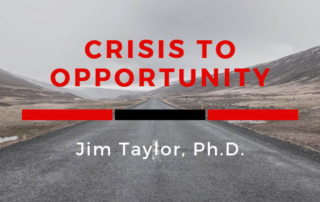Crisis to Opportunity Podcast: Episode #7-Disappointment or Devastation
In Episode #7 of my Crisis to Opportunity podcast, we continue our exploration of the powerful role that emotions play in how we react to crises in our lives. Specifically, this podcast will examine whether you experience either disappointment or devastation as you confront a crisis and how each of these emotions enables you to [...]

